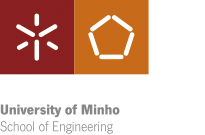Description
The Master's in Aerospace Engineering aims to provide advanced and comprehensive training linked to the areas of aerospace engineering, which include the more traditional sectors of development, design and manufacture of aeronautical products and services, and the most recent ones related to the aerospace sector (such as new-space or data science, or innovative aerospace applications, for example).
Key learning outcomes
1. Demonstrate advanced knowledge with solid foundation and holistic view of Aerospace Engineering;
2. Demonstrate detailed understanding of the sector's value chain;
3. Use information systems for communication, data acquisition and processing and advanced scientific calculation to support Aerospace Engineering;
4. Integrate technical, economic, business, environmental and social responsibility aspects in the development of projects, interpretation of experimental data and carrying out audits in the aeronautical/aerospace sector;
5. Apply experimental approach to problems in the aeronautical and aerospace sector, integrating multidisciplinary knowledge of technical and human component in the project;
6. Apply acquired knowledge on decision-making in problems in the aeronautical and aerospace area, with the respective communication of the reasons on the technological, social and ethical aspects relevant to the sector.
Access to higher education
The completion of this 2nd cycle course (120 ECTS), assuming a 1st cycle training (180 ECTS) provides the required training conditions for access to 3rd cycle training in various scientific areas or in the same scientific area.
Careers
Depending on the specialization that the students of the Master's in Aerospace Engineering choose, there are several professional opportunities:
1) Specialization in Space Systems – The student will be trained for the development of space systems, namely in the planning of missions, in the design and development of space systems, in the development of systems (hardware and software) and use of data, in the integration of satellites and launchers and their operation;
2) Specialization in Aerospace Engineering Design – The student will be trained for the development of aeronautical and space systems, namely in the design and development and integration of components and subsystems to be incorporated in aircraft;
3) Specialization in Aerospace Structures and Manufacturing - The student will be trained for the development of structural components and subsystems using state-of-the-art materials applications and advanced manufacturing systems. The student will be able to plan and implement processes and manufacturing methods suitable for the aerospace sector;
4) Specialization in Aerospace Systems Engineering - The student will be trained for the development of systems and subsystems for command and control, communications, data analysis, etc. including software development and its integration into aerospace platforms.

